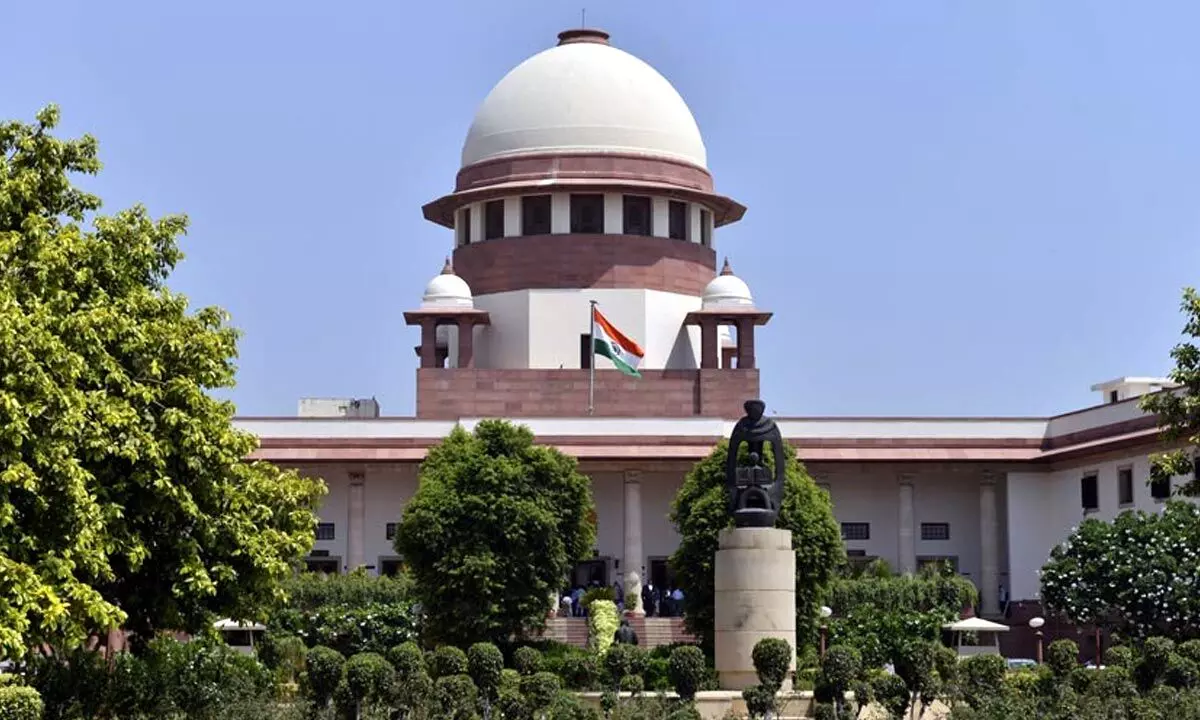Supreme Court: Atypical manifestations of family units deserve protection under law

Supreme Court of India
The Supreme Court has said that black letter of the law must not be relied upon to disadvantage families, which are different from traditional ones, and it holds true for women who take on the role of motherhood in ways that may not find a place in the popular imagination.
New Delhi: The Supreme Court has said that black letter of the law must not be relied upon to disadvantage families, which are different from traditional ones, and it holds true for women who take on the role of motherhood in ways that may not find a place in the popular imagination.
The top court noted that familial relationships may take the form of domestic, unmarried partnerships or queer relationships and such atypical manifestations of the family unit are equally deserving not only of protection under law but also of the benefits available under social welfare legislation.
A bench comprising Justices D.Y. Chandrachud and A.S. Bopanna said the predominant understanding of the concept of a "family" both in the law and in society is that it consists of a single, unchanging unit with a mother and a father and their children. However, this assumption ignores both, the many circumstances which may lead to a change in one's familial structure, and the fact that many families do not conform to this expectation to begin with, it added.
Justice Chandrachud, who authored the judgment on behalf of the bench said: "Familial relationships may take the form of domestic, unmarried partnerships or queer relationships. A household may be a single parent household for any number of reasons, including the death of a spouse, separation, or divorce."
The top court judgment came on an appeal by a nurse at the Postgraduate Institute of Medical Education and Research, Chandigarh (PGIMER), who challenged the denial of maternity leave for her biological child. The petitioner was told that she had already availed such leave for two of her elder kids from her husband's previous marriage. The top court had allowed her appeal on August 16 and the judgment was uploaded on August 28.
Justice Chandrachud noted that the guardians and caretakers of children may change with remarriage, adoption, or fostering and these manifestations of love and of families may not be typical but they are as real as their traditional counterparts. "Such atypical manifestations of the family unit are equally deserving not only of protection under law but also of the benefits available under social welfare legislation. The black letter of the law must not be relied upon to disadvantage families which are different from traditional ones. The same undoubtedly holds true for women who take on the role of motherhood in ways that may not find a place in the popular imagination," said Justice Chandrachud.
The bench said in the present case the structure of the appellant's family changed when she took on a parental role with respect to her spouse's biological children from his previous marriage. "When courts are confronted with such situations, they would do well to attempt to give effect to the purpose of the law in question rather than to prevent its application... we hold that the appellant was entitled to the grant of maternity leave," said the top court, setting aside, the Central Administrative Tribunal, which dismissed her plea for allowance as per maternity leave benefits in the Central Civil Services Rules (CCS) Rules, 2013.




